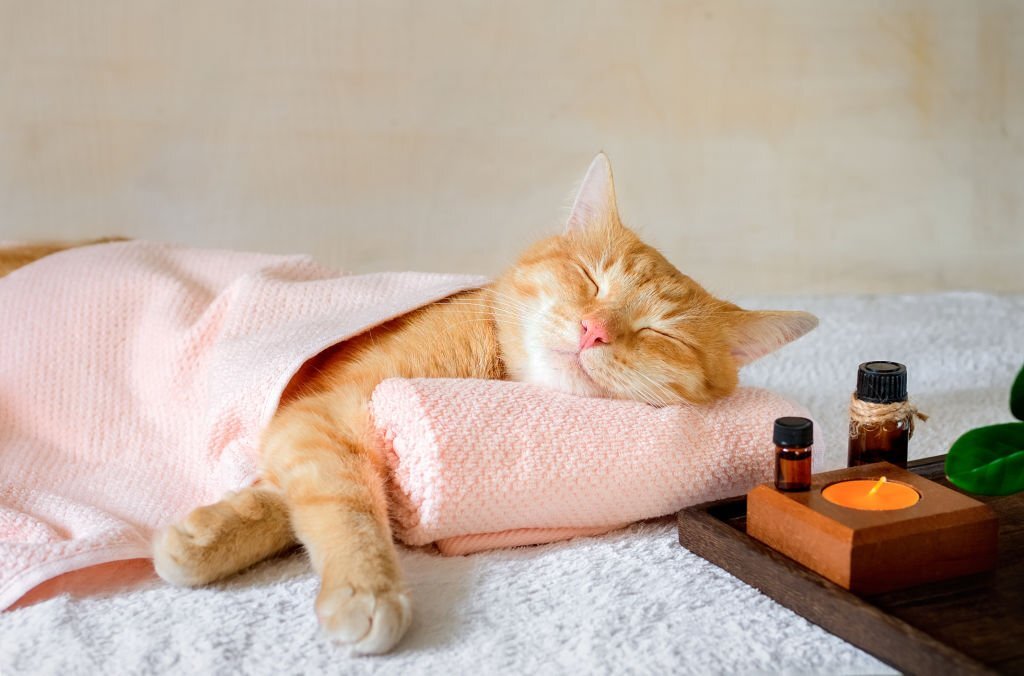Many of us enjoy the pleasant scents of essential oils whether we use them for aromatherapy or for other uses. Essential oils, however, can be toxic to our pets. Read on for our tips on how to use your favourite oils safely whilst having pets, which oils to avoid, and what to do if you suspect your pet may have come into contact with your oils.
Tips for pet-friendly use:
Appropriate use of essential oils is vital if you wish to use them in the home with your pet. The Australian Animal Poisons Helpline provides this advice:
- Utilise essential oil burners and vaporisers in well ventilated spaces. What we consider to be an insignificant scent can be overwhelming or harmful to your pet.
- Ensure containers holding essential oils can’t be accessed by pets, especially making sure to return the container to a safe storage area after use.
- Never apply concentrated essential oils to your pets’ skin or coat.
We also recommend these tips:
- ‘Pet proof’ your space: Make sure your diffuser or burner is in a place where it can’t be knocked over by your pet, which could expose them to the oils.
- Avoid using diffusers and burners in a space with your pet if they have any respiratory issues.
- Avoid using diffusers and burners in a space with a pet bird, as it can have a more serious effect on their respiratory tracts.

Essential oil toxicity and knowing the signs:
External exposure: Dogs and cats who have been exposed to essential oils in an external sense (on their coat, or paws) tend to display symptoms of dizziness, depression, and low body temperature in more severe cases.
Ingestion: If ingested, pets can display symptoms of vomiting, diarrhoea, and depression. Please note that mist from diffusers can land on your pet’s coat and be ingested while grooming.
Respiratory irritation: This can present as watery eyes or nose, throat and nose irritation/burning, breathing difficulties (laboured breathing, increased breathing rate, coughing, wheezing, panting), and nausea (drooling and/or vomiting).
It is important to note that all essential oils can be toxic to cats, as they lack the enzymes in their liver to metabolise and eliminate the chemical compounds in essential oils. While dogs don’t have the same enzyme deficiency, they are still at risk of irritation or toxicity.
Oils to avoid:
These common essential oils are particularly toxic:
- Eucalyptus and tea tree oil – Ingestion can result in drowsiness, unsteadiness, confusion, seizures, and coma. Severe poisoning has occurred due to the application of concentrated tea tree oil on the skin of dogs and cats.
- Camphor – Causes stimulation of the central nervous system and can cause seizures.
- Clove oil – Causes depression of the central nervous system and can cause liver injury.
- Oil of wintergreen – Can result in abdominal pain, vomiting, panting, confusion, seizures, coma, and even death due to the high concentration of methyl salicylate.

What to do if your pet is suffering from essential oil toxicity:
If you suspect that your pet has been exposed to any essential oil, we recommend that you first call the Australian Animal Poisons Centre on 1300 869 738. Please contact us as soon as possible afterwards.
Contact us:
If you have any concerns or further questions about your pet please book in for a consultation online or by calling our awesome reception team on 9369-1822.
References:

